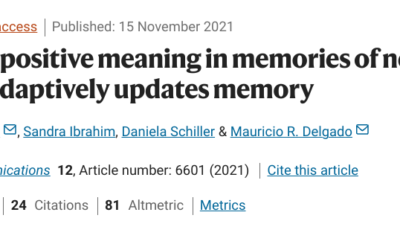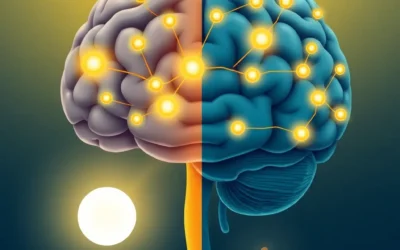Understanding Narcissism and Its Impact on Relationships
Defining Narcissism:
Narcissism is a complex personality disorder characterized by a pervasive pattern of grandiosity, a constant need for admiration, and a lack of empathy. Individuals with narcissistic personality disorder (NPD) have an inflated sense of self-importance and an overwhelming desire for attention and validation. They often believe they are special and entitled to special treatment. Narcissists have an exaggerated sense of their own accomplishments and talents, while simultaneously belittling others to maintain their superiority.
Narcissistic behaviour exists on a spectrum, ranging from individuals who exhibit some narcissistic traits to those diagnosed with NPD. It's important to note that not all individuals who display narcissistic traits have NPD. However, the impact on relationships can still be significant and damaging.
Unmasking the Narcissist:
Being in a relationship with a narcissist can be an exhausting and emotionally draining experience. Narcissists are skilled manipulators who use various tactics to control and exploit their partners. Understanding these tactics is crucial in recognizing and healing from the abuse.
One common tactic used by narcissists is idealization. In the beginning stages of a relationship, they often shower their partner with excessive attention, affection, and compliments, making them feel special and loved. This idealization phase is designed to create a strong emotional bond and gain control over the partner's emotions.
However, as the relationship progresses, the narcissist's behaviour shifts into devaluation. They begin to criticize, demean, and belittle their partner, undermining their self-esteem and self-worth. This devaluation is a means of exerting control and dominance over their partner while maintaining a sense of superiority.
Eventually, the cycle culminates in the discard phase, where the narcissist abruptly ends the relationship or withdraws emotionally. This can leave the victim feeling confused, abandoned, and desperate to regain the narcissist's love and approval.
Gaslighting is another manipulation tactic commonly employed by narcissists. Gaslighting involves distorting the victim's perception of reality, making them question their own sanity. The narcissist will deny their abusive behaviour, twist events, and make the victim doubt their memories and judgment. This manipulation tactic serves to maintain control and undermine the victim's confidence.
Projection is yet another tactic employed by narcissists. They project their own flaws, insecurities, and negative traits onto their partners. By doing so, they avoid taking responsibility for their actions and make their partners feel responsible for the issues within the relationship.
The Psychological Effects of Narcissistic Abuse:
Recovering from a relationship with a narcissist is not just about moving on; it also involves healing from the emotional and psychological wounds inflicted during the abusive dynamic.
One of the significant long-term effects of narcissistic abuse is the erosion of self-esteem and self-worth. The constant criticism and devaluation by the narcissist chip away at the victim's confidence, leaving them feeling unworthy and inadequate. The victim may internalize the narcissist's negative beliefs and struggle with self-doubt long after the relationship ends.
Additionally, victims of narcissistic abuse often experience a range of complex emotions, such as fear, anxiety, anger, and shame. They may find it challenging to trust others or themselves, given the betrayal and manipulation they endured. The trauma bonding that occurs in narcissistic relationships further complicates the healing process. Victims can develop an unhealthy attachment to the narcissist, even when intellectually aware of the toxicity.
Furthermore, victims may exhibit symptoms of post-traumatic stress disorder (PTSD) due to the psychological trauma endured. Flashbacks, nightmares, and hyper-vigilance are common, and reminders of the abusive relationship can trigger intense emotional reactions.
It is essential to recognize and validate these psychological effects in order to begin the healing process. Understanding that the pain, confusion, and self-doubt experienced after a breakup with a narcissist are normal responses to an abnormal situation is a crucial step toward recovery.
Recovering from narcissistic abuse requires a multifaceted approach that addresses both the emotional and psychological aspects of the healing journey. While each individual's experience is unique, there are strategies and techniques that can facilitate the recovery process.
Part 2: The Road to Recovery
Establishing No Contact:
One of the most vital steps in recovering from a narcissistic breakup is establishing and maintaining strict no contact with the narcissistic ex-partner. This means cutting off all forms of communication, including phone calls, text messages, emails, and social media interactions. Maintaining contact with the narcissist only prolongs the healing process and can lead to further manipulation and emotional distress.
Implementing no contact requires discipline and a commitment to prioritizing one's own well-being. It may be necessary to block the narcissist's phone number, delete them from social media platforms, and inform mutual acquaintances of the desire for no contact. Having a support system in place, such as friends, family, or a therapist, can provide guidance and encouragement during this challenging phase.
It is important to be prepared for the narcissist's attempts to break no contact. Narcissists often engage in a phenomenon known as "hoovering," where they try to suck their victims back into the relationship through various means of manipulation and false promises. Understanding this tactic and staying firm in maintaining no contact is crucial for the healing process.
Healing Emotional Wounds:
Recovering from narcissistic abuse involves healing deep emotional wounds inflicted during the relationship. Self-compassion and self-care are essential components of this healing process. It is crucial to treat oneself with kindness, patience, and understanding, acknowledging that the abuse was not one's fault and that healing takes time.
Engaging in therapy or counselling with a professional experienced in narcissistic abuse can provide valuable support and guidance. Cognitive-behavioural therapy (CBT) is often effective in challenging and reframing negative thought patterns and beliefs that were instilled by the narcissist. Mindfulness practices, such as meditation and breathing exercises, can help in grounding oneself in the present moment and reducing anxiety and stress.
Grief is a natural part of the recovery process. Allowing oneself to mourn the loss of the relationship, even if it was toxic, is an important step toward healing. It is crucial to acknowledge and express the range of emotions that arise, including anger, sadness, and betrayal. Journaling, creative outlets, and support groups can provide safe spaces to process these emotions and gain insights from others who have gone through similar experiences.
Rebuilding a positive self-image is a key aspect of healing. Affirmations, positive self-talk, and engaging in activities that bring joy and fulfillment can help in nurturing self-worth and rebuilding confidence. Surrounding oneself with supportive and empathetic individuals who validate one's experiences and strengths is also crucial in this process.
Rebuilding Trust and Self-Esteem:
After being in a relationship with a narcissist, trust in oneself and others may be severely damaged. Rebuilding trust starts with cultivating self-trust. It involves reconnecting with one's intuition, listening to and honouring one's own needs and boundaries, and gradually rebuilding faith in one's decision-making abilities.
Developing healthy boundaries is essential in preventing future entanglements with narcissistic individuals. Learning to assert one's needs, desires, and limits in relationships helps in creating healthier dynamics. It is important to recognize that setting boundaries is not selfish but rather an act of self-care and self-respect.
Building a support network is crucial for rebuilding trust and self-esteem. Surrounding oneself with understanding and empathetic individuals who provide genuine support and validation can help in restoring faith in human connections. Seeking therapy or joining support groups specifically tailored for survivors of narcissistic abuse can provide a safe space to share experiences, gain insights, and receive encouragement.
In some cases, seeking professional help from a therapist or counsellor specializing in narcissistic abuse recovery may be necessary. They can provide specialized guidance and therapeutic techniques to address the unique challenges faced by survivors.
Overcoming Codependency:
Codependency often goes hand in hand with narcissistic relationships. Codependent tendencies can attract individuals to narcissistic partners, as they are more prone to prioritize the needs and desires of others over their own. Overcoming codependency is crucial for establishing healthy relationships moving forward.
Developing and maintaining healthy boundaries is a fundamental aspect of breaking free from codependency. Recognizing and respecting one's own needs, wants, and limits is essential. It may involve learning to say no, setting clear boundaries, and prioritizing self-care.
Building independence is another key aspect of overcoming codependency. This involves finding fulfillment and happiness within oneself rather than relying on others for validation and self-worth. Engaging in activities that promote personal growth, pursuing individual passions, and nurturing one's own interests can foster a sense of self-identity and independence.
Therapy can be immensely beneficial in addressing codependency patterns. A therapist can provide tools and techniques to help individuals identify and break unhealthy patterns, develop self-esteem, and learn healthier ways of relating to others.
3: Thriving After Narcissism
One of the first steps towards recovery is regaining control over one's life and sense of self. Narcissists excel at undermining their partner's self-esteem, leaving them feeling unworthy, powerless, and dependent. To counteract this, it is essential to focus on self-empowerment.
Self-Reflection and Awareness: Engaging in self-reflection allows individuals to recognize patterns, identify vulnerabilities, and understand the dynamics of the toxic relationship. This self-awareness serves as a foundation for personal growth and recovery.
Establishing Boundaries: Setting clear and firm boundaries is crucial when recovering from a narcissistic breakup. It involves learning to say no, prioritizing personal needs, and protecting oneself from further emotional harm.
Self-Care and Nurturing: Prioritizing self-care activities, such as exercise, mindfulness, healthy eating, and engaging in hobbies, helps rebuild self-worth and promotes emotional well-being.
Healing Emotional Wounds: The emotional wounds inflicted by a narcissistic partner can run deep. To facilitate healing, it is essential to address these wounds head-on and develop healthy coping mechanisms.
Seek Support: Connecting with a support network of friends, family, or support groups can provide a safe space for validation, empathy, and guidance. Professional therapy, specifically with therapists experienced in narcissistic abuse recovery, can be invaluable in navigating the healing journey.
Embrace Emotional Expression: Allow yourself to feel and process the emotions that arise post-breakup. Journaling, art therapy, and talking to trusted individuals can help release emotions and gain clarity.
Rebuilding Self-Trust: Narcissistic partners often erode their victim's self-trust. Rebuilding it involves self-compassion, self-forgiveness, and recognizing personal strengths and accomplishments.
Creating a New Narrative: Recovering from a narcissistic breakup offers an opportunity for individuals to redefine themselves, their values, and their aspirations. By reframing the narrative and focusing on personal growth, individuals can establish a brighter future.
Rediscovering Identity: Engage in activities that nurture personal interests and passions, helping rebuild a sense of self outside of the toxic relationship. Explore new hobbies, join clubs, and connect with like-minded individuals.
Redefining Relationships: Assess existing relationships and evaluate whether they are healthy and supportive. Surround yourself with individuals who uplift and respect you. Prioritize quality over quantity in your friendships and build new connections based on mutual trust and empathy.
Setting Realistic Expectations: Recognize that healing takes time and that progress is not always linear. Avoid putting pressure on yourself to completely recover within a specific timeline. Instead, focus on small victories and celebrate each step forward.
Embracing Personal Growth: View the breakup as an opportunity for personal growth and self-improvement. Take up new challenges, engage in self-development activities, and explore avenues for expanding your knowledge and skills.
Rebuilding Trust and Intimacy: Narcissistic relationships often leave individuals with deep wounds and a fear of vulnerability. Rebuilding trust and creating healthy intimacy are essential components of the recovery process.
Trusting Yourself: Rebuilding trust in others begins with trusting yourself. Listen to your instincts, honour your boundaries, and learn to differentiate between healthy and unhealthy relationship dynamics.
Slow and Steady Approach: Take your time when entering new romantic relationships. Allow the bond to develop gradually, and pay attention to red flags. Healthy relationships are built on trust, respect, and genuine emotional connection.
Seek Professional Support: Consider working with a therapist experienced in trauma and relationship recovery to navigate the complexities of rebuilding trust and intimacy. They can provide guidance, support, and tools for creating healthier relationship patterns.
Thriving and Moving Forward
Recovery from a narcissistic breakup is not just about healing; it's also about rediscovering joy, purpose, and a sense of fulfillment. Here are some key strategies to help you thrive and move forward:
Cultivating Gratitude: Practice gratitude for the lessons learned, personal growth achieved, and the strength gained through the recovery process. Appreciating the present moment and finding joy in small pleasures can shift your focus towards positivity.
Pursuing Meaningful Goals: Set meaningful goals that align with your values and aspirations. Whether it's personal, professional, or creative, having goals gives you a sense of purpose and direction.
Embracing Self-Love and Acceptance: Celebrate your strengths, embrace self-love, and practice self-acceptance. Treat yourself with kindness, compassion, and forgiveness. Focus on your own well-being and prioritize self-care practices that nourish your mind, body, and soul.
Giving Back: Consider using your experiences and newfound wisdom to help others who may be going through similar situations. Sharing your story, volunteering, or participating in support groups can provide a sense of fulfillment and contribute to your own healing journey.
Conclusion:
Recovering from a narcissistic breakup is a courageous and transformative journey. By understanding the dynamics of narcissism, reclaiming personal power, healing emotional wounds, and creating a new narrative, individuals can rebuild their lives and thrive after a narcissistic breakup. Remember to be patient with yourself, seek support when needed, and embrace the opportunity for personal growth and self-discovery. You have the strength within you to overcome the past, embrace the present, and create a brighter future filled with love, happiness, and empowerment.
Additionally, It can be helpful to talk to a friend or family member about your feelings or seeking the help of a therapist. If you're feeling anxiety there is also online anxiety therapy from licensed counsellors which can help with triggering emotions and reactions you might still have about your narcissist ex. There are applications that have meditations and audios to help you sleep, relax, get over stuff. One to consider is the headspace app because they have good content and a free trial so you can checkout their goods and experience what works best for you.

To help forget your ex and overcome any negative memories or flashbacks, checkout https://reprogrammingmind.com/shop/how-to-get-over-your-ex-deluxe-bundle-hypnosis-audios-pdfs-audiobook/



































